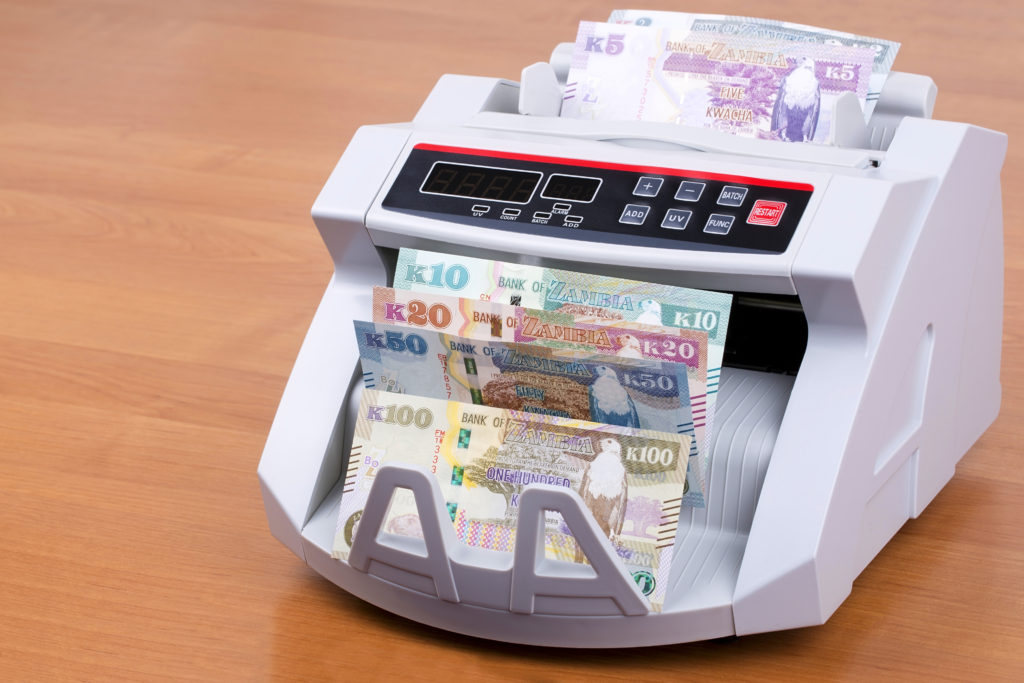Mining For Zambia recently published Professor Oliver Saasa’s views on Zambia’s proposed move from VAT to Sales Tax. According to a report soon to be produced by the Chamber of Mines, Sales Tax will massively increase the price of goods and services, for individuals and businesses alike. So, if Sales Tax is not a good idea, what could be done to improve the problems with the current system?
What are the problems with the current system?
“The value-added tax (VAT) has one major weakness: Its collection mechanism requires governments to refund tax,” writes Dr Marius van Oordt, a member of the United Nations sub-committee on extractive industries taxation, in an ongoing International Tax and Investment Centre (ITIC) study.
Many developing countries experience difficulty paying VAT refunds. This often leads to governments questioning VAT’s viability, explains van Oordt.
“Through this new tax, Zambia will sidestep the requirement to pay consumption tax refunds, but at potentially great cost to its government revenues and, by taxing production, also to its economy.”
Abandoning VAT is “the most extreme solution,” he says. The fact that the Ministry of Finance has postponed the adoption of a Sales Tax several times since January 2019 shows that there is reticence within Government to make the move.
What are the advantages of VAT?
According to van Oordt, “the broader base and greater revenue feasible under a VAT makes it a clear choice for developing countries.” And, the adoption of VAT generally leads to a modest increase in tax revenues, according to the Journal of Development Economics.
Professor Oliver Saasa weighs in.
Abandoning VAT is “the most extreme solution”
“VAT has worked very well for Zambia, apart from some challenges including refunds. But these are problems that can be amended, and it’s really all about enforcement and whether or not you have reporting and monitoring systems at the Zambia Revenue Authority (ZRA) to ensure compliance, which are able to detect those who are avoiding their tax obligations.”
What are some recommendations for easing ZRA oversight and improving capacity for compliance?
“ZRA needs to be equipped with an appropriate number of professionals who have the right software, hardware, and Information Technology (IT) infrastructure in order to follow up on tax payments,” says Saasa. “ZRA needs to make sure that the big-time tax avoiders are identified. At the moment, there are too many perforations in the tax net. The fact is, Zambia has not perfected the ability to collect taxes from the informal sector, which comprises approximately 80 percent of the economy. That’s the biggest challenge for ZRA, the Ministry of Finance, and the government generally: How do you secure compliance? And how do you cast your tax net wide enough to cover the majority who are falling through the cracks?”
But more fundamental is the need to shift attitudes within many overseeing tax authorities. To illustrate this, Van Oordt notes the important distinction between “VAT” and “VAT revenue”. According to him, VAT revenue is the amount that remains after all VAT refunds have been duly paid.
“Unfortunately, governments [often] see VAT received from firms (before refunds) as VAT revenue and, consequently, VAT refunds as foregone revenue. This results in insufficient funds to pay refunds when they become due. If VAT revenues are understood as a net rather than a gross concept, the first and largest practical administrative challenge is to secure enough funds to pay VAT refunds.”
This is where a VAT refund forecasting and monitoring system could be a game-changer. Estimating the percentage of VAT that Government will need to refund will allow for this amount to be allocated to a VAT refunds account, from which refunds are paid — in an ideal situation, promptly. Premier Consult’s August 2019 study, authored by Professor Saasa and his colleague Shebo Nnlishebo, recommends that a specified percentage of daily VAT collection is transferred to a refund account, by law.

How far would making prompt VAT refund payments go towards reducing Zambia’s fiscal challenges?
According to van Oordt, “Paying VAT refunds promptly will benefit investors. But it is also in host countries’ best interest to pay VAT refunds promptly. This should incentivise investment and formalisation through VAT registration, and increase efficiency in tax compliance and administration. This is true for all economic sectors, but especially for the extractive industries. Because of the capital-intensive and export-oriented nature of these industries, the VAT refund practice of host countries is central to the investment decisions in minerals, oil and gas. In many developing countries, these sectors are too important for economic development to be exposed to poor tax practices. Investment follows certain, consistent, good tax practices.”
Indeed, consistency is key. Conversely, lack of consistency is demonstrably harmful.
Saasa comments: “The worst thing in Zambia is that the tax regime is very unstable. In the last 15 years, we’ve seen the tax regime change every 18 months on average. When it comes to the development of the mining sector, the amount of capital required is intensive, and miners aren’t able to harvest any profits from that investment until three or four years down the line. So, when you want to expand, you have certain assumptions about the fiscal policies, the tax lists, and the stability of the tax regime. When you keep on changing these policies, you send very conflicting signals to the market. This kind of instability is enemy number one to any serious investor in the Zambian copper mining industry.”
“It is in host countries’ best interest to pay VAT refunds promptly. This is true for all economic sectors, but especially for the extractive industries.”
General Manager of Munali Nickel Mine, Matthew Banda, has seen all manner of changes in Zambia’s mining industry over the last two decades, and makes a similar observation.
“You need a stable environment at the end of the day. Investments [in mining] are long-term investments – most of them 10 years, 20 years, or more. So, once investors are allocating their funds, they’re looking to stay that long. The challenge to investor confidence arises when you start changing the economic environment; when you start changing the rates for taxes such as VAT, the rates for mineral royalties, the rates for duties, and so on and so forth.”
Should VAT remain in place?
If VAT is to remain in Zambia, the historical failure to pay refunds urgently needs to be addressed. Van Oordt posits that the non-payment of VAT refunds is, effectively, a tax on investment. Besides the implementation of a forecasting and monitoring system, there are other ways in which Zambia could fund VAT refunds.
“One option is to allow firms to offset VAT refunds against liabilities arising from other taxes, for instance, the income tax. This is an option for extractive industry firms that have commenced production and, therefore, have other tax liabilities.”
Premier Consult’s study finds that offsetting VAT refunds in this way would work most efficiently if ZRA invests in a more effective, electronic-based taxpayer debt management system than is currently in place.
Van Oordt offers another solution: to issue tradable bonds equal to the amount of VAT refunds that are due. “Although investors may prefer a tradable bond to not receiving a VAT refund, this approach risks that investors are forced into accepting tradable bonds. Governments may also become reliant on issuing tradable bonds as VAT refunds.”
Neither of these two options should replace a robust forecast and monitoring system, however. And, a country’s political and administrative will to improve their VAT refund system is, naturally, indispensable.
“At the end of the day, the most important thing is to empower ZRA in its capacity to ensure compliance,” says Saasa.
See also: Sales Tax will shrink Zambia’s economy, says Prof. Oliver Saasa























